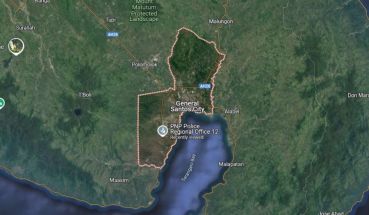US leader under pressure over Iraq
WASHINGTON (AFP) - Mounting demands from lawmakers for a new Iraq policy are battering President George W. Bush, but the White House insists the rising political heat will not force a quick about-face on troop withdrawals.
Increasing Republican anxiety over Bush's strategy and a new Democratic assault has set the stage for the next two weeks in Congress in what could prove the most crucial showdown yet on ending the war.
Republicans have so far offered Bush a firewall against attempts to handcuff his war powers by Democratic leaders, who have backed a bid to get most combat troops home from Iraq by April 1, 2008.
The new intensity of the Iraq debate came as the administration prepared to unveil an interim report on the progress of Bush's strategy to surge nearly 30,000 extra soldiers into the war-torn nation.
US officials said the progress report to Congress due out later this week would give mixed reviews to the strategy and to efforts by leaders in Baghdad to take steps to quell violence.
"I'm not sure everybody is going to get an 'A' on the first report," White House spokesman Tony Snow said wryly to reporters when asked about Iraq's government and its failures thus far to meet US goals for reconciliation.
It was unclear whether the report would find many concrete achievements to praise.
"The report to be issued by Sunday will present a picture of satisfactory progress on some benchmarks and not on others. This is to be expected given the report is a preliminary snapshot of what are the early stages of the full surge," a senior US official said hours after the briefing.
The official declined to spell out which areas would get good marks and which would not.
The Senate and House of Representatives are meanwhile taking a new look at Iraq policy, hoping to squeeze Republicans between their support for the war and public opinion which has turned against it.
After a handful of veteran Republicans recently broke with Bush over the war, Senator John Warner, a closely-watched party elder statesmen, kept his cards close to his chest.
He said he would not announce his position on various Senate measures aimed at changing Iraq strategy until he had heard from Bush, but hoped the president would address the American people directly.
After another bloody weekend, with the loss of another 10 US troops in Iraq, several other Republicans said they now believed it was time to change course.
"We have to move from non-binding (action) to a binding approach in changing our strategy in Iraq," Senator Olympia Snowe of Maine told reporters.
Another Republican, Senator Susan Collins, earlier told CNN that Republicans had little option but to break with Bush.
Democratic Senator Jack Reed said after returning from Iraq, and a meeting with General David Petraeus, that the US commander could make a definitive assessment of Iraq strategy before an already set date of September.
"They ... I think, recognize that another month of operations is not going to, I think, reveal more information about the nature of the insurgency, their ability to sustain themselves, their operational plans."
The White House refused to bend to mounting calls for troop withdrawals but was moving to try to quell public anxiety over the war.
The Washington Post reported Bush would emphasize in a speech Tuesday his intent to reduce the level of US forces next year if security conditions improve.
"Look, the president understands the American people are frustrated," a senior official, speaking on condition of anonymity, told the Post.
White House spokesman Tony Snow said a New York Times report that the administration was engaged in an intense internal debate over a gradual withdrawal from Iraqi cities was "way ahead of the facts."
He did however acknowledge Iraq's often-criticized security forces may be unable to assume control of their war-torn country's security by November as planned.
Asked whether that time frame still held, Snow told reporters: "You mean on all the provinces? ... I don't think we're probably going to get there, but I'm not sure."
Bush had set the time table in a January 10, 2007 speech unveiling his plans to send the extra troops to Iraq in a bid to quell violence and improve the chances for political reconciliation.
- Latest
- Trending































